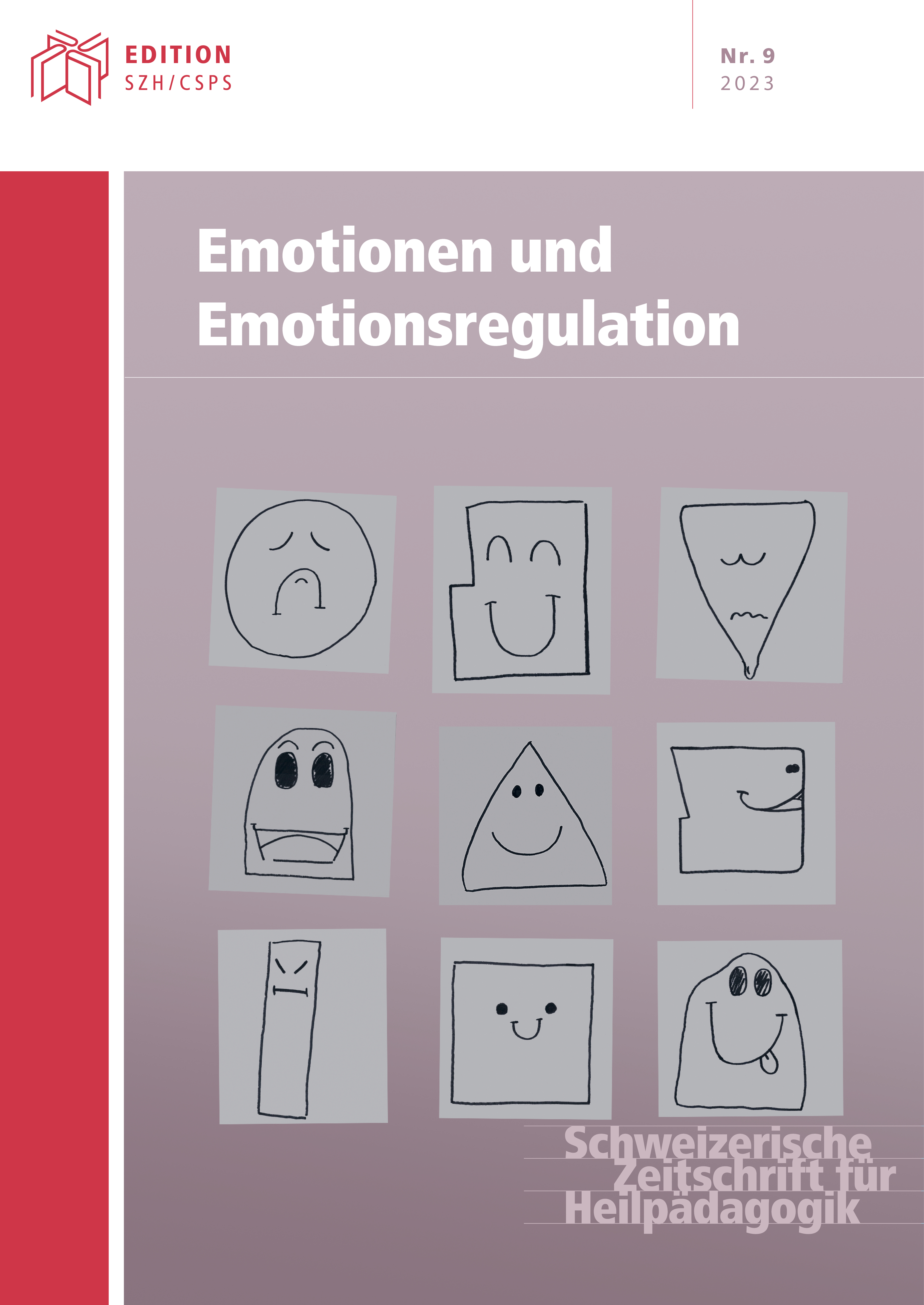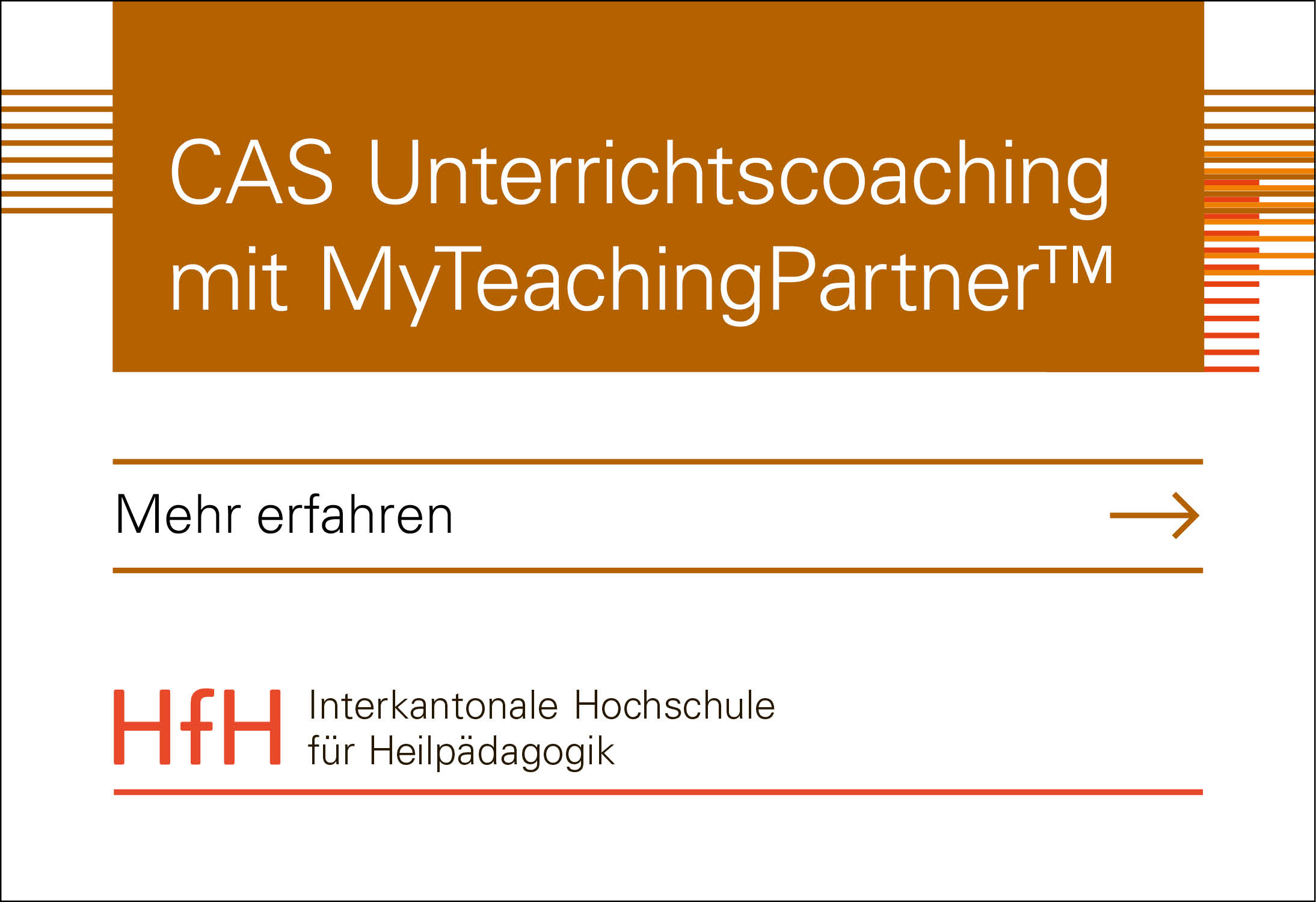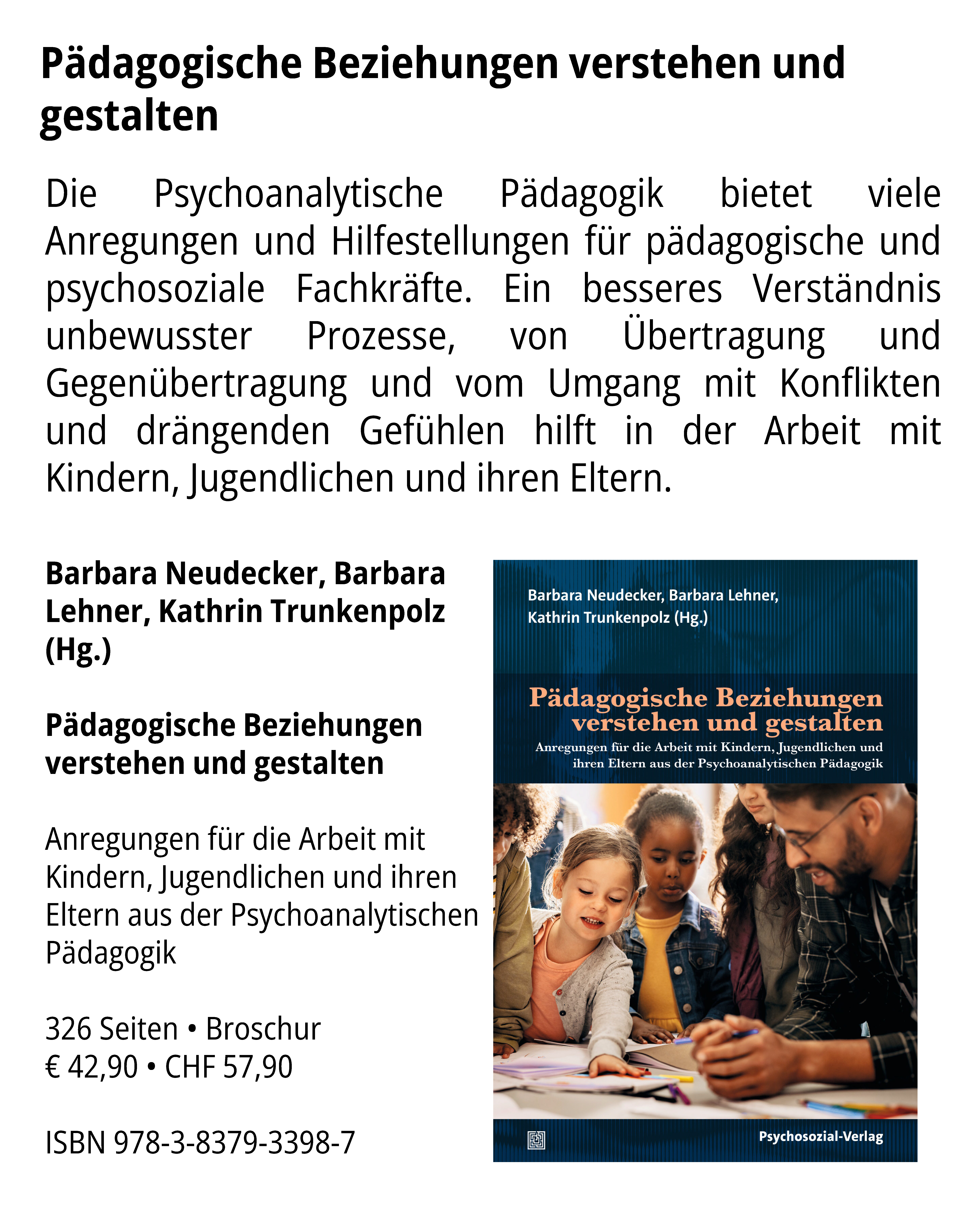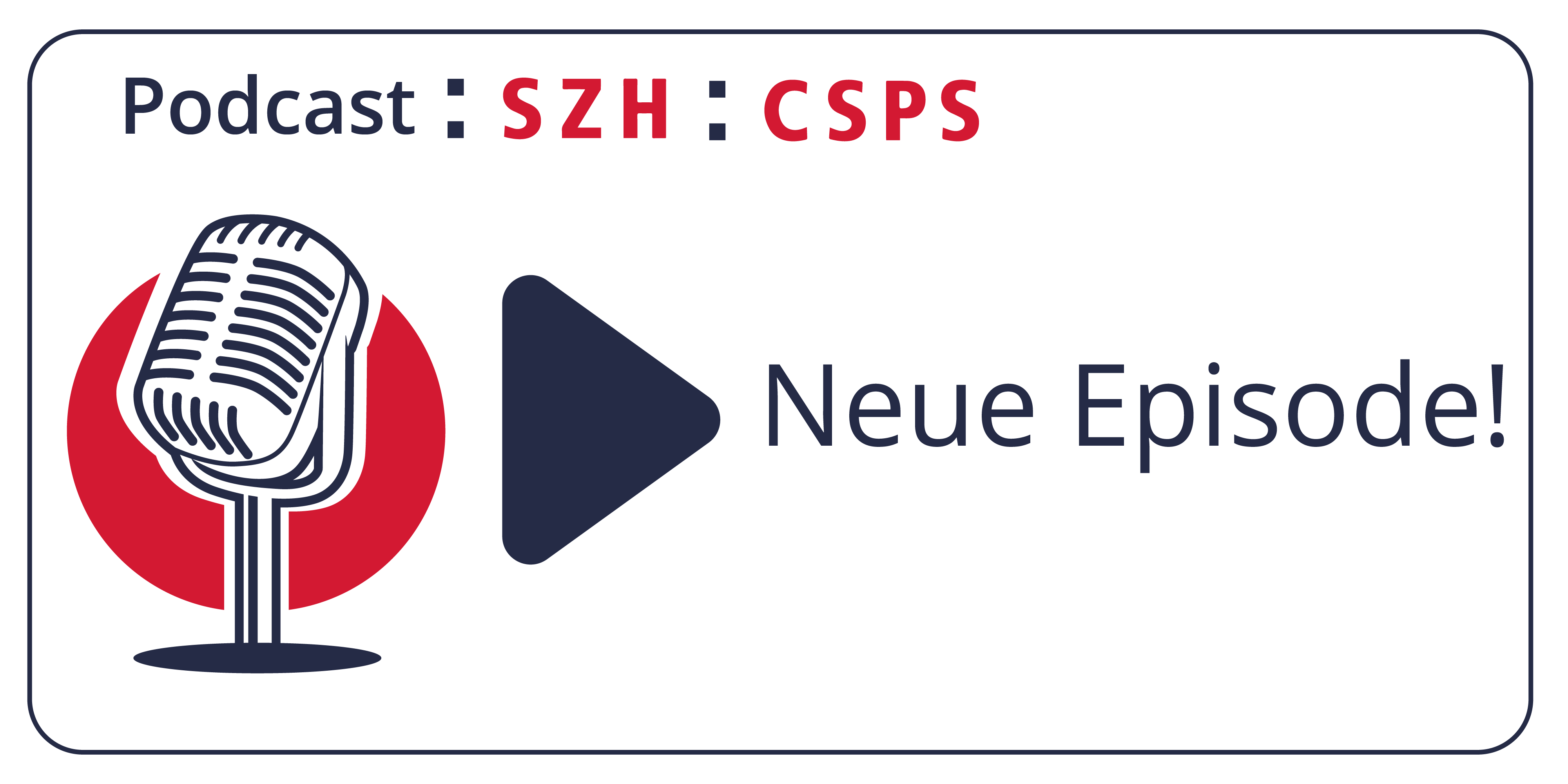Emotionen und Emotionsregulation im Vorschulalter: Was zeigt sich im dyadischen Spiel?
DOI :
https://doi.org/10.57161/z2023-09-01Mots-clés :
âge préscolaire, apprentissage précoce, apprentissage social, développement socio-émotionnel, jeuRésumé
La régulation émotionnelle joue un rôle capital, car elle permet à l’enfant de se développer sainement et de mieux réussir dans ses apprentissages. De plus, des compétences sociales et émotionnelles élevées mènent à une meilleure acceptation dans le groupe, ce qui peut à son tour influencer positivement le bienêtre de l’enfant. Cet article donne un aperçu des premiers résultats du projet « EmU – émotions entre enfants » du Fonds national suisse (FNS) et formule les connaissances qui en résultent pour la pratique.
Références
Chaplin, T. M. & Aldao, A. (2013). Gender differences in emotion expression in children: a meta-analytic review. Psychological bulletin, 139 (4), 735.
Holodynski, M., Hermann, S. & Kromm, H. (2013). Entwicklungspsychologische Grundlagen der Emotionsregulation. Psychologische Rundschau, 64 (4), 196–207. https://doi.org/10.1026/0033-3042/a000174
Mayr, T., Bauer, C. & Krause, M. (2012). KOMPIK Kompetenzen und Interessen von Kindern in Kindertageseinrichtungen: Ein neues Beobachtungsverfahren für Kindertageseinrichtungen. Frühe Bildung, 3, 163–165.
Mirabile, S. P. (2014). Parents’ inconsistent emotion socialization and children’s socioemotional adjustment. Journal of Applied Developmental Psychology, 35 (5), 392–400. https://doi.org/10.1016/j.appdev.2014.06.003
Nischak, P., Lorusso, S., Diebold, T., Burkhardt Bossi, C. & Perren, S. (2023, August 30th). Development and Validation of the Emotion Regulation Scoring System (ERSS). An Observational Tool to Assess Emotion Regulation in Preschoolers in Play Situations with Peers [Poster presentation]. European Conference on Developmental Psychology, Turku, Finland. http://dx.doi.org/10.13140/RG.2.2.31119.56488
Perren, S. & Diebold, T. (2017). Soziale Kompetenzen sind bedeutsam für gelingende Peerbeziehungen und Wohlbefinden in der Kindertagesstätte. Frühe Kindheit, 2, 30–38.
Perry, N. B. & Dollar, J. M. (2021). Measurement of behavioral emotion regulation strategies in early childhood: The Early Emotion Regulation Behavior Questionnaire (EERBQ). Children, 8 (9), 779.
Sanchis-Sanchis, A., Grau, M. D., Moliner, A. R. & Morales-Murillo, C. P. (2020). Effects of age and gender in emotion regulation of children and adolescents. Frontiers in psychology, 11, 946.
Shields, A., & Cicchetti, D. (1997). Emotion regulation among school-age children: the development and validation of a new criterion Q-sort scale. Developmental psychology, 33 (6), 906.
Valiente, C., Swanson, J., DeLay, D., Fraser, A. M. & Parker, J. H. (2020). Emotion-related socialization in the classroom: Considering the roles of teachers, peers, and the classroom context. Developmental Psychology, 56 (3), 578–594. https://doi.org/10.1037/dev0000863
Téléchargements
Publiée
Comment citer
Numéro
Rubrique
Licence
© Tatiana Diebold, Carine Burkhardt Bossi, Pablo Nischak, Sonja Lorusso, Sonja Perren 2023

Ce travail est disponible sous la licence Creative Commons Attribution 4.0 International .








